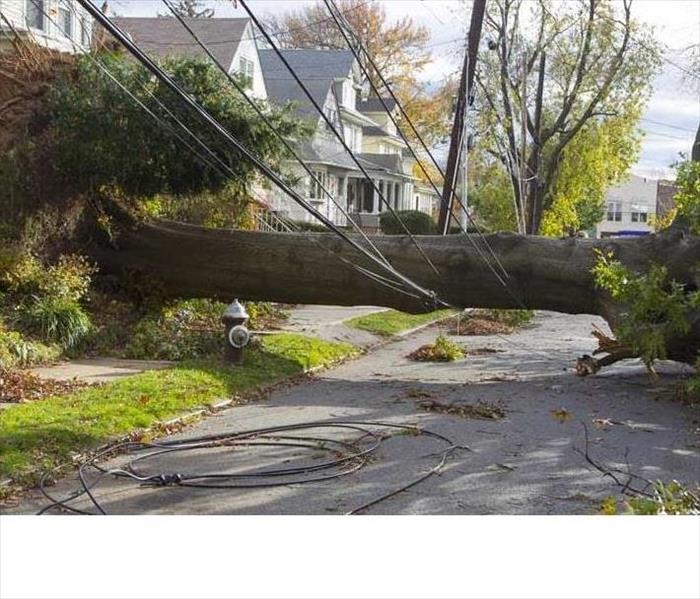Power Outage Tips
3/20/2018 (Permalink)
 Whether or not you know it's coming, a power outage can be a major disturbance. It never hurts to know what to do once the lights go out.
Whether or not you know it's coming, a power outage can be a major disturbance. It never hurts to know what to do once the lights go out.
From ready.gov
Before
- Power outages can happen at any time and are unavoidable, but the costs associated with them can be lessened by installing a home backup generator at a home or business.
- Have a place in your home where flashlights, a battery-powered radio, and extra batteries can be easily found.
- If you know the outage is coming, set aside extra water and buy or make extra ice. You can use the ice to keep perishable items cool.
- Make sure the battery in your smoke detector is fresh. Test the smoke detector on a monthly basis to make sure it's working.
- Keep an appliance thermometer in the freezer. If the freezer is 40 degrees Fahrenheit or colder when the power returns, all the food is safe.
During
- If possible, use flashlights instead of candles for emergency lighting. Candles used in unfamiliar settings can be dangerous fire hazards.
- Turn off or disconnect any appliances, equipment, or electronics that were on when the power went out. When power comes back on, it may come back with momentary "surges" or "spikes" that can damage equipment such as computers and motors in appliances like the air conditioner, refrigerator, washer, or furnace.
- Leave one light on so you know when the power returns.
- Avoid opening the refrigerator and freezer. This will help keep your food as fresh as possible. Be sure to check food for signs of spoilage.
- Use generators safely. If you have a portable generator, only run it outdoors with adequate ventilation. Never use a generator indoors or in attached garages. The exhaust fumes contain carbon monoxide, which can be deadly if inhaled.
- Listen to the radio for updates.






 24/7 Emergency Service
24/7 Emergency Service